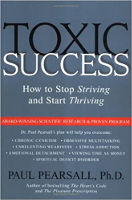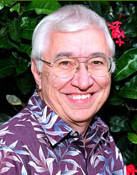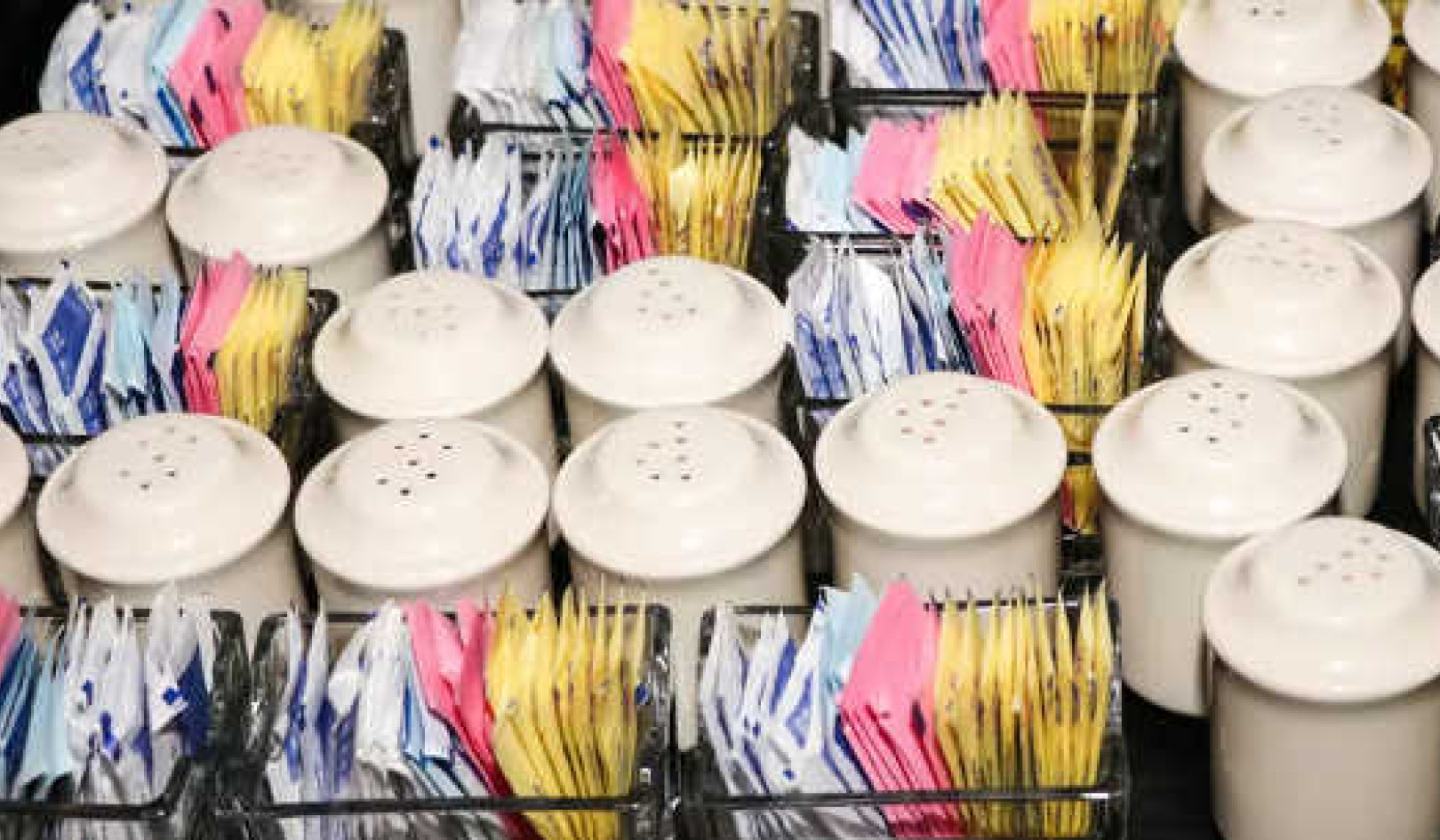
Image by congerdesign
In his groundbreaking book, No Contest : The Case Against Competition, challenging the role of competition that is at the root of toxic success in American life, author Alfie Kohn writes,
"Life for us has become an endless succession of contests. From the moment the alarm clock rings until sleep overtakes us again, from the time we are toddlers until the day we die, we are busy struggling to outdo others. This is our posture at work and at school, on the playing field and back at home. It is the common denominator of American life."
The toxically successful often behave like predators in pursuit of their prey. It seems that they cannot help or free themselves from the ultimate competition -- our competition against our own life now as something to overcome or transcend in order to achieve a better life later. Unless we are willing to change our mind about what life means and who and what it should be for, we will remain deprived of a good life because of our competition to get a better one.
Competition has become so much a part of how we work, live, and love that it is difficult to consider a life not based upon it. We are so immersed in our toxic competition to be successful that those who are not driven by this obsession are seen as "out of it," not fully engaged in the game of life, or even cowardly. Most indigenous cultures like Hawaii are perplexed by the modern world competitiveness and seeming blindness to its negative effects.
A kahuna (Hawaiian healer and teacher) was talking with me about my more than eight-year struggle to find a publisher willing to help me share my views about toxic success. He said, "The modern world is drowning in a sea of poisonous success. The signs are all around them in their struggling families, poor health, and as they hurry past the meaning and joy of life. They are as fish who do not reflect on the nature of the water they are in. They cannot imagine or comprehend its presence and control of their lives because they cannot imagine its absence in their lives."
Competition and Drive
We compete to find the "best" job, home, car, friends, lover, sex life, diet, exercise program, or shortest and quickest route through traffic. It is not just the stadium full of fans chanting, "We're number one!" or the little league baseball player crying after striking out that reveals the dominance of competition in modern living.
It is the low but nagging hum of "you can do it, keep going, you can win, you can do better" that is raising our blood pressure, lowering our immunity, sending us to the fighter's pharmacy, and taking our attention away from those we say we love and the life we say we would like to have. The victory virus has become pandemic, a wide-spread cultural insanity that is leading to our experience of the failure of success.
Psychoanalyst Karen Horney described the mental illness of a toxic succeeder as "someone who constantly measures himself against others, even in situations which do not call for it." Such persons are our models of success. They are in positions of power and control and receive the rewards our society doles out to those who have honed their competitive edge. They conduct their life without experiencing the need for psychiatric intervention or psychotherapy and are seldom "diagnosed" by the establishment as "crazy" because it itself has gone mad with need for success.
They are generally nice neurotics who have become our cultural role models, modern-day versions of the Greek tragic heroes that most of us wrongly and dangerously aspire to be. Author Elliot Aronson writes, "The American mind in particular has been trained to equate success with victory, to equate doing well with beating someone."
The opposite of competition is not just trying harder to be cooperative. It is working mentally harder to resist the temptation to succumb to our ancient ways and to seek a mental contentment that allows cooperation to flow naturally and to happen to us. Sweet success requires recognizing and then resisting the brain's competitive default mode, but in a society that considers competition not only good but essential and natural, changing our mind to an "us" instead of "me" mode is not easy.
Selling the Idea
"Would you be content to be number two on the New York Times bestseller list?" asked an editor of a large New York publishing house. Their book-acquisitions committee was discussing with me the possibility of publishing this book, and I was doing the best I could to explain the dangers of toxic success and its related competitiveness that controls our lives. "I can't believe you'd be content with that," she said. "Competition is what drives us to succeed and do well, so who is going to buy a book about not competing? Don't you agree that it is what got this country where it is today? It's almost un-American not to compete."
My answer did little to help me sell my idea to the publishing house. "I do agree that competition is what got us where we are today, " I responded. "The question I am asking is if we really feel in our most contemplative moments that we are where we want to be in all aspects of our living, loving, and working. Of course I would be thrilled to have a book that becomes number two or number one in sales, but for me, that would be a side effect and result, not a goal. The comparative number means much less to me than whether or not my book turned out to make a constructive difference in people's lives. I think there is sufficient evidence now to show that how we define success and the me-against-you way we are going after it is going to lead to disaster if we don't relearn what it means to be content. Competition by its very nature is detachment, a way of being against people rather than with them and a way of struggling through life rather than enjoying it."
"Well, good luck then," said the editor, leaning back in her chair and shoving my proposal aside. "We, at this house, are not content with being number two, and we want authors who want to be number one. We could never pitch this to our sales staff. Without comparison to others, life has very little meaning or perspective. Your idea of success is just too unrealistic."
More than ten years later, I finally found a home for my book with a company in Hawaii that embraces po'okela and its central Polynesian value of being of help over being on top. Whether I succeed in convincing you to take a fresh look at the assumptions about the normal and natural way to succeed is now in your hands.
How Fit Are the Survivors?
The competition compulsion you read about in the words of the editor described above is often defended on the basis of Charles Darwin's theories of evolution and what is mistakenly seen as his emphasis on the principle of "survival of the fittest." This famous statement has become the mantra of the modern world, but, in fact, there is no basis in the theory of natural selection from which this survivalist mentality is said to derive.
Darwin himself never said or wrote the phrase "survival of the fittest." It was naturalist Herbert Spencer, not Charles Darwin, who coined it, but even he did not describe this principle in terms of the dog-eat-dog world we think gave birth to us. He was referring to being strong but not necessarily to defeating others. Being fit was not just defined by victory over others but as possessing highly adaptive skills that ultimately enhanced the common good.
If Darwin would have written a five-word phrase regarding his theories of evolution, it would more likely have read "survival of the most cooperative." He believed and wrote that those communities that contain the greatest number of cooperative individuals are the most likely to survive. He wrote that his references to the struggle for existence were meant in a "large and metaphorical sense, including dependence of one being upon another.''
Scientist Stephen Jay Gould wrote, "The equation of competition with success in natural selection is merely a cultural prejudice.' This prejudice has led to the toxic success I have been describing. It has become so pervasive that feeling insanely overwhelmed, chronically impatient, selfishly striving, and hostilely competitive has become more and more accepted as normal in Euro-American cultures. When we say it seems that the world has gone mad, we are right. A society of millions trying to win must inevitably create millions and millions of losers.
If we wish to use nature as our model, we are better advised to connect, combine, and cooperate than to self-assert, compete, and conquer. One hundred years ago scientist Petr Kropotkin reviewed the habits of hundreds of species, from ants to buffalo. His work clearly showed that cooperation, not competition, was the primary element in those species that survived. He wrote,
"Competition . . . is limited among animals to exceptional periods. . . . Better conditions are created by the elimination of competition by means of mutual aid and mutual support. Don't compete! Competition is always injurious to the species, and you have plenty of resources to avoid it. . . . That is the tendency of nature. . . . Therefore practice mutual aid! That is what Nature teaches us"
Sweet success, then, may be at least as "natural" as the more competitive brand.
Going Against the Grain
It is difficult to argue successfully against the current assumption of the naturalness of competitiveness. Our current mind-set of assertive and comparative individualism is well established and defended. The toxically successful reading this are probably already engaged in rebuttal, nitpicky cynicism, denial, and even attack in defense of their cherished way of thinking about life.
They are the "normal" ones, and the craziness of a sweeter success through a less competitive and more contented way of thinking will not go down easily with them. The possibility that we might consider being less than we can be and not always interested in personal victory or being number one will seem crazy to those who have become successfully normalized. The new sciences of sweet success show that, in this case, adjustment is not good for our health.
The "be all you can be, just do it, go for the gold, personal power, self-assertive" orientation of toxic success has dominated the last several decades. It has been celebrated in hundreds of books and success seminars. Despite this trust in competition as the way to ultimate happiness, there is very little research to support it. For example, researcher and psychiatrist Roderic Gorney writes, "Any objective appraisal of modern man will disclose that, in the overwhelming preponderance of human interactions, cooperation completely overshadows competition."
Because many scientists suffer from toxic success themselves and feel they must compete to be first in order to move up the academic ladder and to be "outstanding" in their respective fields, any challenge to this orientation is met with skepticism. Psychologist Marian Radke Yarrow has written about this scientific reluctance to consider a sweeter version of success. She comments, "Aggression, anxiety, guilt, and self-centered motives and behavior have been so much the cloth of theory and research that questions of a 'softer' side of . . . human beings seem almost unscientific."
I am not suggesting that we are necessarily any more naturally selfless and caring than we may be inclined to competitiveness. I am suggesting, however, that the almost total dominance of the competitive way of thinking about life and the cluster of the toxic success fallout characteristics are not beyond our control or capacity to modify them. We may not be naturally or unavoidably caring, cooperative, and loving, but research shows that we are not unavoidably anything at all -- and, as you have read, least of all naturally competitive.
Reprinted with permission of the publisher,
Inner Ocean Publishing, Inc. ©2002, 2004. www.innerocean.com
Article Source
Toxic Success: How to Stop Striving and Start Thriving
by Paul Pearsall, Ph.D.
 Dr. Pearsall directly challenges many of the self-help conventions, which he finds are not solutions but part of the problem. His detoxification program has helped many TSS patients to sweeten it up by changing their mindset and taking back their attention, focusing on what they need, not what they want.
Dr. Pearsall directly challenges many of the self-help conventions, which he finds are not solutions but part of the problem. His detoxification program has helped many TSS patients to sweeten it up by changing their mindset and taking back their attention, focusing on what they need, not what they want.
About the Author
 Paul Pearsall, Ph.D. (1942-2007) was a licensed clinical psychoneuroimmunologist, a specialist in the study of the healing mind. He held a Ph.D. in both clinical and educational psychology. Dr. Pearsall has published more than two hundred professional articles, written fifteen best-selling books, and has appeared on The Oprah Winfrey Show, The Monte/ Williams Show, CNN, 20/20, Dateline, and Good Morning America.
Paul Pearsall, Ph.D. (1942-2007) was a licensed clinical psychoneuroimmunologist, a specialist in the study of the healing mind. He held a Ph.D. in both clinical and educational psychology. Dr. Pearsall has published more than two hundred professional articles, written fifteen best-selling books, and has appeared on The Oprah Winfrey Show, The Monte/ Williams Show, CNN, 20/20, Dateline, and Good Morning America.
Visit his website at www.paulpearsall.com.


























